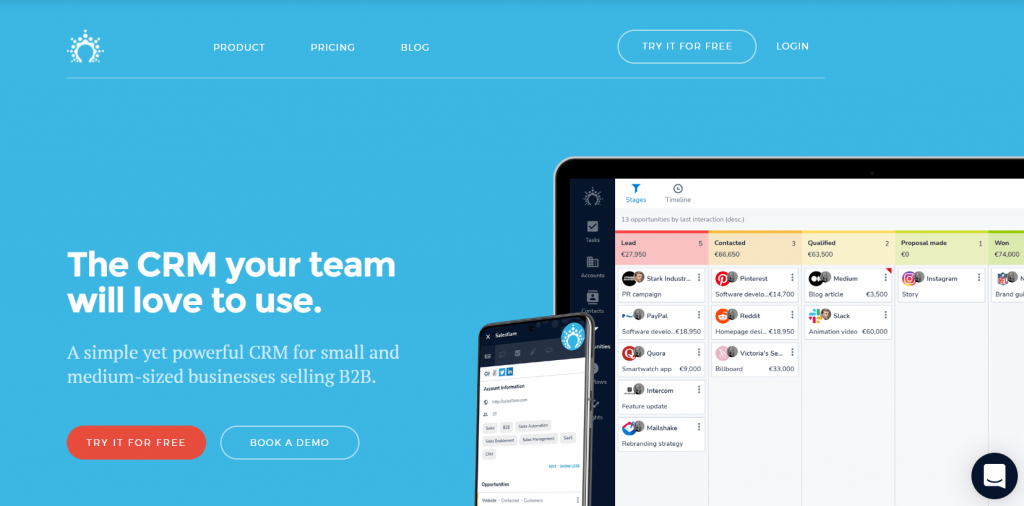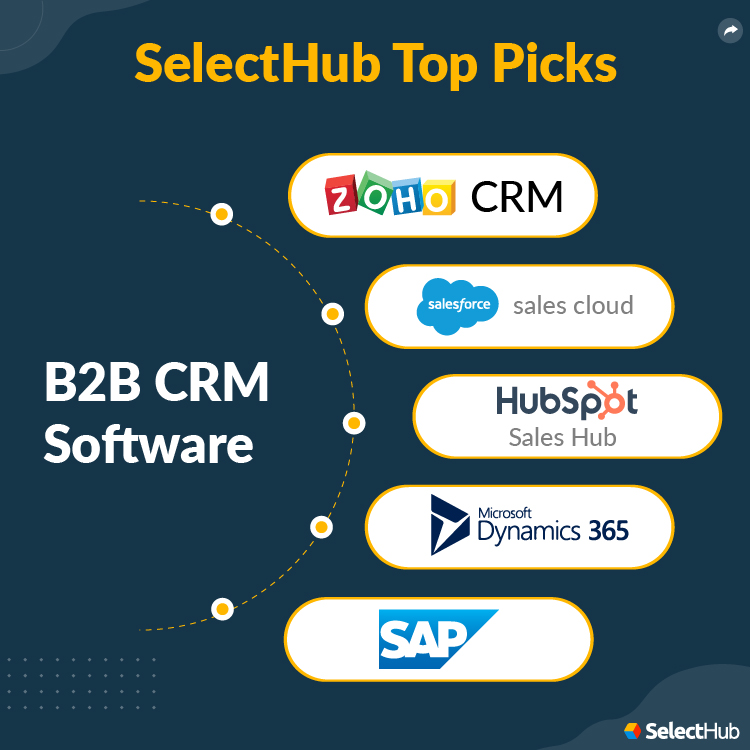Exploring the realm of best CRM B2B, this introduction sets the stage for a detailed and insightful discussion on how businesses can optimize their operations and relationships through effective CRM systems.
It delves into the core concepts of CRM for B2B, highlighting the key features and considerations that can make a significant impact on business growth and customer interactions.
Introduction to CRM for B2B
Customer Relationship Management (CRM) is a system that helps businesses manage interactions with current and potential customers. In the context of Business-to-Business (B2B) relationships, CRM plays a crucial role in maintaining strong connections with clients and optimizing sales strategies. B2B refers to transactions between businesses rather than between a business and individual consumers.
Importance of CRM in B2B Relationships

CRM is essential for B2B companies as it allows them to track customer interactions, manage leads, and streamline communication with clients. By centralizing customer data, CRM systems enable businesses to provide personalized services and improve customer satisfaction. In the B2B sector, maintaining long-term relationships with clients is key to driving repeat business and fostering loyalty.
Key Features of CRM for B2B Businesses
– Customization options to tailor CRM to specific B2B needs
– Integration capabilities with other B2B tools and platforms
– Advanced analytics for tracking and analyzing customer data
Factors to Consider when Choosing the Best CRM for B2B
B2B companies have unique requirements that a CRM system should address. These include the need for robust lead management, complex sales processes, and collaborative tools for team communication. When selecting a CRM for B2B, it is essential to consider its scalability, customization options, and integration capabilities.
Specific Needs of B2B Companies
– Detailed lead management features to track and nurture leads
– Collaborative tools for team communication and account management
– Integration with marketing automation platforms for targeted campaigns
CRM Options for B2B versus B2C

While CRM systems for B2B and B2C share similarities, B2B-focused solutions often offer more advanced features for managing complex sales cycles and multiple stakeholders. B2B CRM platforms may prioritize account-based marketing, lead scoring, and pipeline management to align with B2B sales processes.
Successful B2B CRM Implementations
Companies like Salesforce, HubSpot, and Zoho have successfully implemented CRM solutions tailored for B2B businesses. These platforms offer industry-specific features, integrations with popular B2B tools, and scalability to support growing enterprises.
Top CRM Software for B2B Businesses
When evaluating CRM software for B2B, businesses should consider the features, scalability, and industry-specific tools offered by each platform. Below is a comparison table highlighting some of the leading CRM software options for B2B:
| CRM Software | Features | Scalability |
|---|---|---|
| Salesforce | Advanced analytics, account-based marketing | Highly scalable for large B2B enterprises |
| HubSpot | Lead management, marketing automation | Scalable for growing B2B companies |
| Zoho CRM | Customization, pipeline management | Flexible for different B2B needs |
Scalability of CRM Solutions for B2B

Leading CRM software options for B2B businesses offer scalability to accommodate the growth and evolving needs of enterprises. These platforms provide customization options, integrations with third-party tools, and robust support for expanding B2B operations.
Industry-Specific CRM Tools for B2B, Best crm b2b
Some CRM software solutions excel in catering to specific industries within the B2B sector. For example, construction companies may benefit from CRM systems with project management capabilities, while healthcare providers may require HIPAA-compliant CRM tools for patient data protection.
Integration and Customization Capabilities
Integrating CRM with other B2B tools and platforms is crucial for streamlining workflows and maximizing efficiency. Customizing a CRM system to align with B2B workflows ensures that businesses can meet specific requirements and optimize their processes. Successful CRM integrations in B2B environments involve seamless data transfer, automated workflows, and centralized communication channels.
Conclusive Thoughts
In conclusion, the journey through the world of best CRM B2B unveils the crucial factors to consider, the top software options available, and the importance of integration and customization for seamless operations.
Questions and Answers: Best Crm B2b
What sets B2B CRM apart from B2C CRM?
B2B CRM systems are specifically designed to cater to the unique needs of businesses operating in a business-to-business environment, focusing on complex sales processes, account management, and long-term relationship building.
How can CRM integration benefit B2B companies?
CRM integration with other B2B tools and platforms enhances data flow, streamlines processes, and provides a holistic view of customer interactions, leading to improved decision-making and efficiency.
What are some industry-specific CRM tools that excel in the B2B sector?
Some industry-specific CRM tools renowned for their excellence in the B2B sector include Salesforce, HubSpot CRM, Zoho CRM, and Microsoft Dynamics 365.
